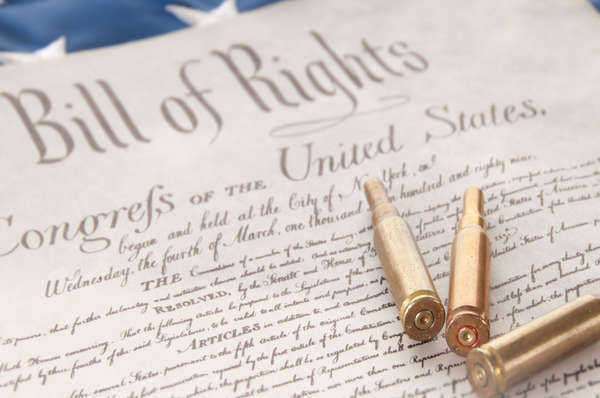
Castle Doctrine
Castle doctrine (also referred to as "castle law") is a broad American idea which refers to the rights of self-defense that a person may exercise with legal immunity if threatened in their house. While this idea has never been codified into law, the principle is incorporated into many states' laws.
The major difference from state to state in their codification of the Castle doctrine concerns the "duty to retreat." This is the idea that someone who has committed an act of violent self-defense first took all possible reasonable steps to avoid violence by retreating from confrontation. In states which have codified the Castle doctrine in some way, there is no requirement concerning a duty to retreat for citizens who have been attacked within their own homes. Typically, such a law based on the Castle doctrine states that people who are in danger in their own house are allowed to respond with force without fear of legal prosecution.
However, other states have modified their laws to create a lower standard for the duty of retreat. One controversial example of an extremely permissive variant of the Castle doctrine occurred in September of 2012 in Montana. In 2009, the state revised its laws on self defense with HB 228, which states that violent self-defense on a person's property is legally permissible if the person who owns the property has the belief that doing so will prevent an assault.
This low standard of proof became a national news story following the death of Dan Fredenberg. On September 22, 2012, Fredenberg went to the house of Brice Harper, who was involved with Fredenberg's wife. Though Fredenberg was unarmed, Harper reported that he felt threatened in his garage. He went into his house, returned with a gun and shot Fredenberg to death. However, the county attorney of the area, Ed Corrigan, issued a ruling stating that Harper had a reasonable belief that he was about to be assaulted and therefore had the legal right to violent self-defense.
Another 2012 story concerning a Castle doctrine law which generated controversy was the death of Trayvon Martin in Florida. Florida operates under the "stand your ground" law, which was passed in 2005. The Florida variant of the Castle doctrine removes the duty to retreat not only on one's property, but also in their vehicles and in public spaces. In February of 2012, 28-year-old George Zimmerman fatally shot an unarmed 17-year-old teenager, Trayvon Martin. Zimmerman claimed that he had been threatened by Martin while observing him walking through the street of a private community.
The case of Trayvon Martin will be prosecuted by the state of Florida. George Zimmermann plans to use the "Stand Your Ground" law as a key part of his defense, by claiming that he is immune from prosecution because the law allowed him to take violent self-defense measures in a public space when he felt threatened.






































